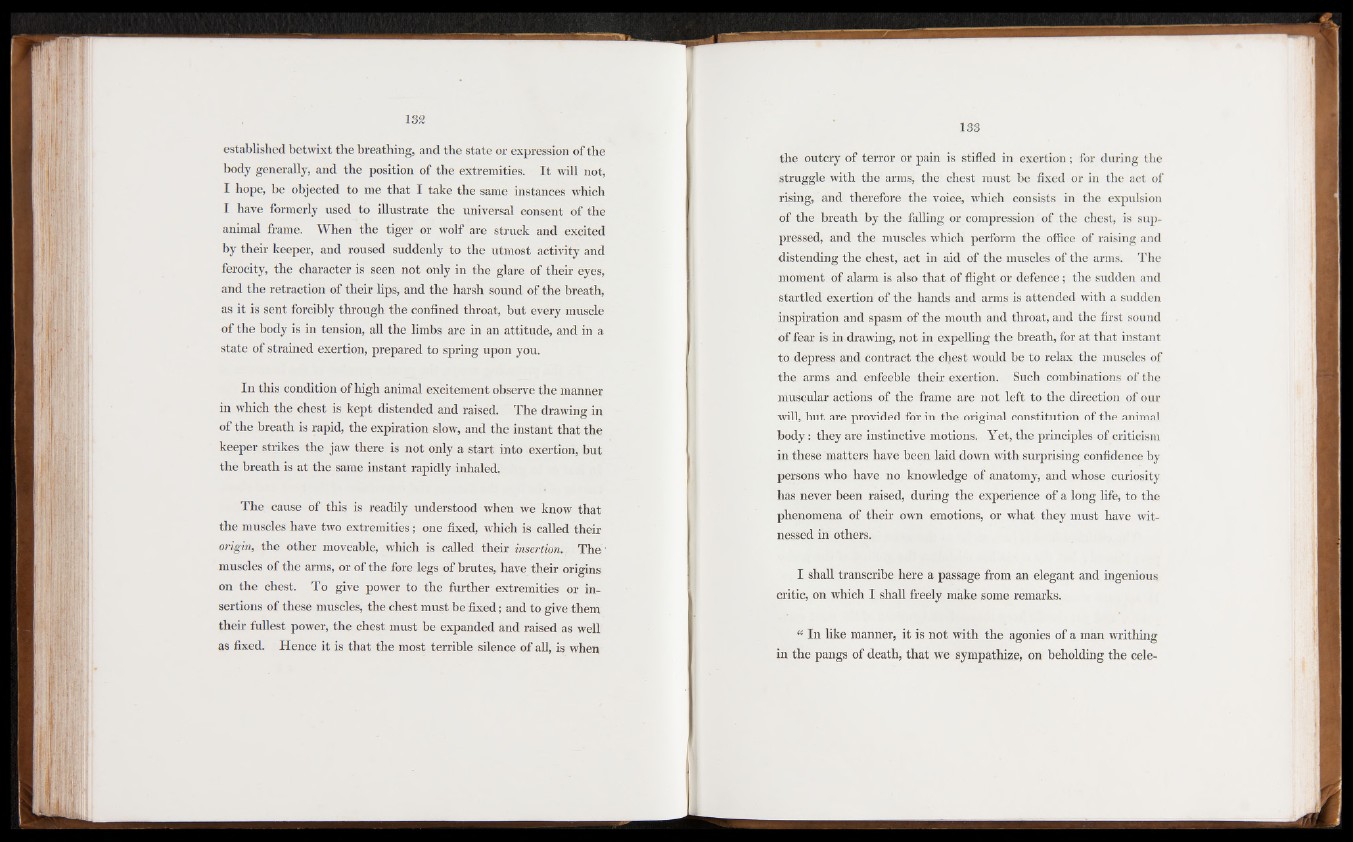
established betwixt the breathing, and the state or expression of the
body generally, and the position of the extremities. It will not,
I hope, be objected to me that I take the same instances which
I have formerly used to illustrate the universal consent of the
animal frame. When the tiger or wolf are struck and excited
by their keeper, and roused suddenly to the utmost activity and
ferocity, the character is seen not only in the glare of their eyes,
and the retraction of their lips, and the harsh sound of the breath,
as it is sent forcibly through the confined throat, but every muscle
of the body is in tension, all the limbs are in an attitude, and in a
state of strained exertion, prepared to spring upon you.
In this condition of high animal excitement observe the manner
in which the chest is kept distended and raised. The drawing in
of the breath is rapid, the expiration slow, and the instant that the
keeper strikes the jaw there is not only a start into exertion, but
the breath is at the same instant rapidly inhaled.
The cause of this is readily understood when we know that
the muscles have two extremities; one fixed, which is called their
origin, the other moveable, which is called their insertion,, The
muscles of the arms, or of the fore legs of brutes, have their origins
on the chest. To give power to the further extremities or insertions
of these muscles, the chest must be fixed; and to give them
their fullest power, the chest must be expanded and raised as well
as fixed. Hence it is that the most terrible silence of all, is when
the outcry of terror or pain is stifled in exertion; for during the
struggle with the arms, the chest must be fixed or in the act of
rising, and therefore the voice, which consists in the expulsion
of the breath by the falling or compression of the chest, is suppressed,
and the muscles which perform the office of raising and
distending the chest, act in aid of the muscles of the arms. The
moment of alarm is also that of flight or defence; the sudden and
startled exertion of the hands and arms is attended with a sudden
inspiration and spasm of the mouth and throat, and the first sound
of fear is in drawing, not in expelling the breath, for at that instant
to depress and contract the chest would be to relax the muscles of
the arms and enfeeble their exertion. Such combinations of the
muscular actions of the frame are not left to the direction of our
will, but are provided for in the original constitution of the animal
body: they are instinctive motions. Yet, the principles of criticism
in these matters have been laid down with surprising confidence by
persons who have no knowledge of anatomy, and whose curiosity
has never been raised, during the experience of a long life, to the
phenomena of their own emotions, or what they must have witnessed
in others.
I shall transcribe here a passage from an elegant and ingenious
critic, on which I shall freely make some remarks.
“ In like manner, it is not with the agonies of a man writhing
in the pangs of death, that we sympathize, on beholding the cele